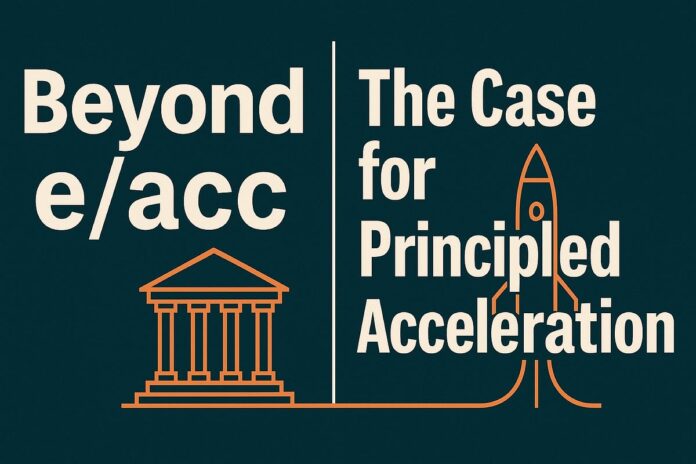Introduction to the Digital Frontier
The digital world is currently divided into two main groups with different philosophies on how to achieve a better future through technology. On one side, there’s the idea of Effective Acceleration (e/acc), which believes that the fastest way to a better future is by maximizing computational power and achieving Artificial General Intelligence (AGI) as quickly as possible, regardless of the cost. This philosophy is all about moving forward as fast as possible, with the belief that a super-intelligent machine will solve all our problems if we just let it happen.
The Incompleteness of Effective Acceleration
While the idea of e/acc is powerful and tempting, it is also incomplete and dangerous. It sees human values, social stability, and ethical considerations as obstacles to progress, things that need to be overcome or optimized away. This approach believes that the end justifies the means, where the only moral imperative is to build and advance as quickly as possible. However, this neglects the importance of direction and ethical considerations in technological progress.
The Need for Principled Acceleration
Effective Acceleration, in its pure form, is a mode of surrendering control, believing that as long as progress is fast, the direction doesn’t matter. This is a critical mistake. What is needed instead is Principled Acceleration (p/acc), a framework that combines ambition and innovation with ethical and social responsibility. p/acc is not about slowing down but about being smarter and more directed in how we pursue technological advancements.
From Velocity to Vectored Progress
Principled Acceleration is the necessary evolution of the e/acc philosophy. It agrees that technological progress is crucial for human flourishing but emphasizes that this progress must be directed and considerate of human values and dignity. Velocity without direction is chaos; progress requires both speed and a clear, ethical path forward.
Key Principles of Principled Acceleration
Principled Acceleration is based on several key principles that differentiate it from Effective Acceleration. These include:
- Dignity as a Design Specification: Human dignity and labor are not costs to be minimized but core design specifications. Systems should be built to augment human capabilities, not replace them, ensuring that technological gains benefit the most vulnerable.
- Architecture Over Authority: Decentralization and open innovation are preferred over centralized authority and control. This approach prevents the concentration of power and promotes resilience through diversity and interoperability.
- Compounding Social and Technical Progress: Social and technical advancements are intertwined. Principled Acceleration seeks to build trust and ensure that technological progress is aligned with societal values, thereby securing its long-term viability.
The Choice Before Us
The debate between Effective Acceleration and Principled Acceleration is not just theoretical; it is a strategic choice that every stakeholder in the digital frontier must make. Effective Acceleration offers rapid progress but at the risk of moral and social reckoning. Principled Acceleration, on the other hand, demands more from us, requiring not just engineering brilliance but also wisdom and architectural foresight to build a future that is both powerful and just.
Conclusion
The path forward in the digital age requires more than just speed; it demands direction, ethics, and a deep consideration of human values. Principled Acceleration offers a vision of technological progress that is not only rapid and innovative but also just, resilient, and worthy of human potential. As we stand at the threshold of this new frontier, the choice is clear: we must choose architecture, we must choose wisdom, and we must choose Principled Acceleration to guide us toward a brighter, more sustainable future for all.

